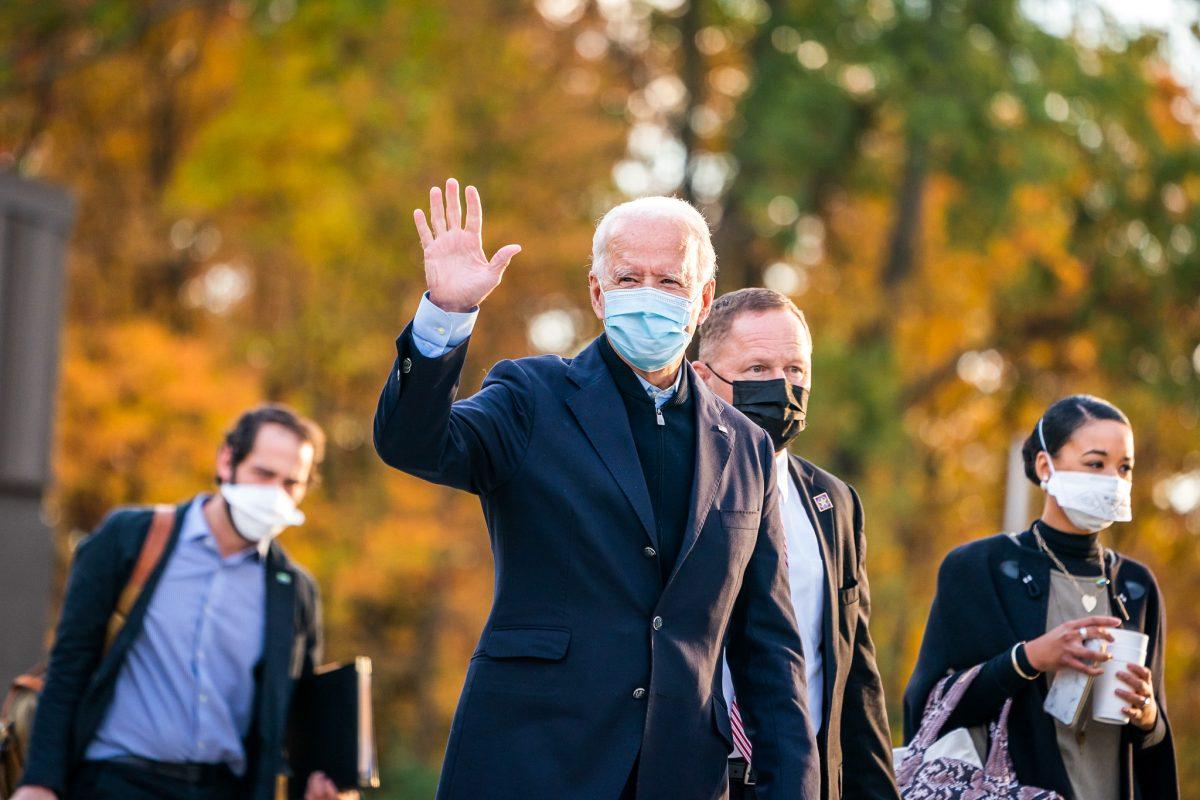The 2020 presidential election has seen a wave of changes in electoral politics.
Within a week of winning Pennsylvania, President-elect Joe Biden has announced a COVID-19 task force, reached out to foreign allies and plans to announce his senior cabinet members. America is already beginning to see the effects. Despite the current president’s refusal to concede the election, the Biden Administration has begun making changes. However, Director of Texas A&M’s Public Policy Research Institute Kirby Goidel, Ph.D., said the president-elect is unlikely to fulfill his dream of unity any time soon after America’s longtime disintegration of trust in institutions across the country — by Democrats and Republicans alike.
“[President Donald] Trump has been unique. His goal is to keep his core supporters… And one way that he keeps them happy is by going after the other side,” Goidel said. “In that type of environment, it’s very hard to imagine that in the short-term this is going to change.”
Despite Trump’s harsh rhetoric while attacking the left throughout his presidency, Goidel said he believes Biden will be able to turn some of that rhetoric down over time after rebuilding trust across the nation.
“In Congress, it’s become so partisan and polarized that it’s hard to imagine bipartisanship, but I think a lot of them want Washington to work better,” Goidel said. “They didn’t get into politics to fight all the time and never get anything done. They want the country to be in a better place.”
Communication professor Jennifer Mercieca, Ph.D., author of “Demagogue for President: The Rhetorical Genius of Donald Trump,” said Biden’s focus on healing the nation and moving past polarization is a message for all of America and falls in line with one particular rhetorical strategy: the “priestly role.”
Mercieca said many presidents have utilized this rhetoric throughout history, in which the leader evokes the values of the nation during times of crisis. This is a clear departure from Trump’s more authentic rhetorical style where he says exactly what he thinks, Mercieca said.
“Where [Biden] differs from Trump probably the most is the way that he is constantly evoking American values, talking about what he thinks America means,” Mercieca said. “He’s much more optimistic about America in general. While he sees that there are big problems, he thinks that, like he says, it’s time to heal and unite the nation to solve those problems.”
History professor Jonathan Coopersmith, Ph.D., said Trump’s rhetoric motivated voters on both sides of the party line to turn out this election season — with Democrats questioning the safety of American democracy under Trump and Republicans hoping to prevent the spread of socialism that Trump often warns of.
“Both sides pushed fear, which is sort of standard,” Coopersmith said. “Fear was a motivating factor, but so was optimism. Black Lives Matter helped a great deal, too, in energizing the younger people.”
Despite historical turnout this election season, Coopersmith said there are still many challenges to voting in the U.S., particularly in Texas. According to the 2020 Cost of Voting Index, Texas is the most difficult state to register to vote and cast a ballot in.
The COVID-19 pandemic also posed additional obstacles for Americans to go out and vote this year, Coopersmith said. However, he said there weren’t many reports of voter intimidation, despite disinformation that spread in many areas of the country.
“We didn’t have the fears of scary looking people showing up outside,” Coopersmith said. “One of the exciting aspects is that the system really worked. Election officials deserve a big pat on the back for all they did.”
Goidel said it’s typical for the country to get tired of the constant political news coverage by the end of each election season. Despite this, he said it is important to focus on the historical voting turnout in 2020.
“This was an exercise in democratic governance, and it’s a pretty remarkable thing when you think about it,” Goidel said. “In American democracy, we said, ‘Rather than have bullets, rather than have revolutions, we’ll have ballots.’”
Analyzing the election
November 11, 2020
Photo by via Joe Biden Facebook
President-elect Joe Biden is proceeding with a transition of power and announced his 13-member COVID-19 task force on Nov. 9.
0
Donate to The Battalion
Your donation will support the student journalists of Texas A&M University - College Station. Your contribution will allow us to purchase equipment and cover our annual website hosting costs.
More to Discover









